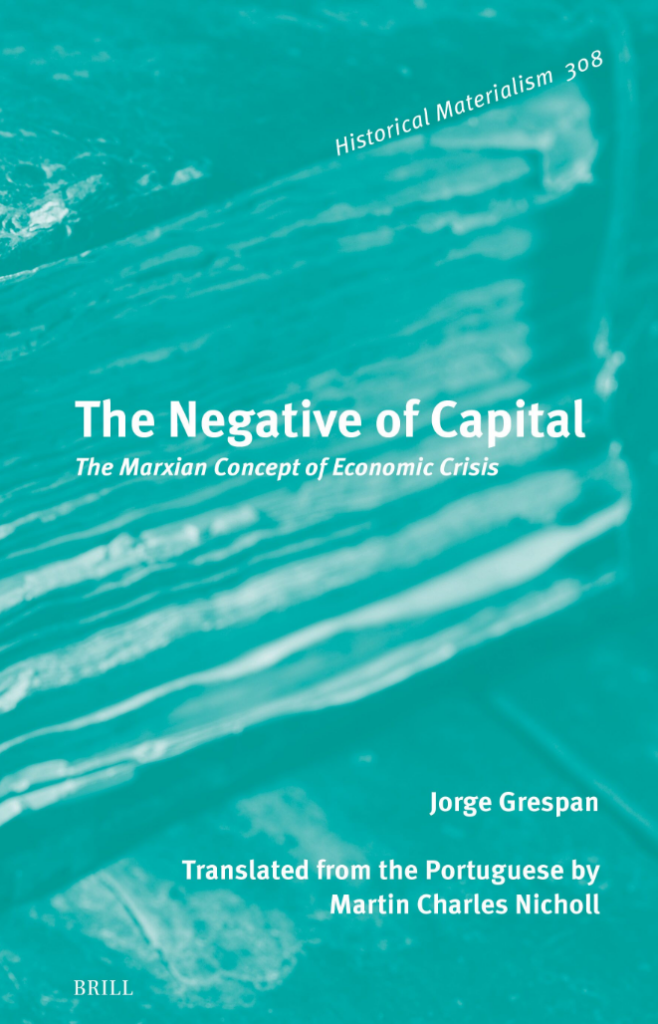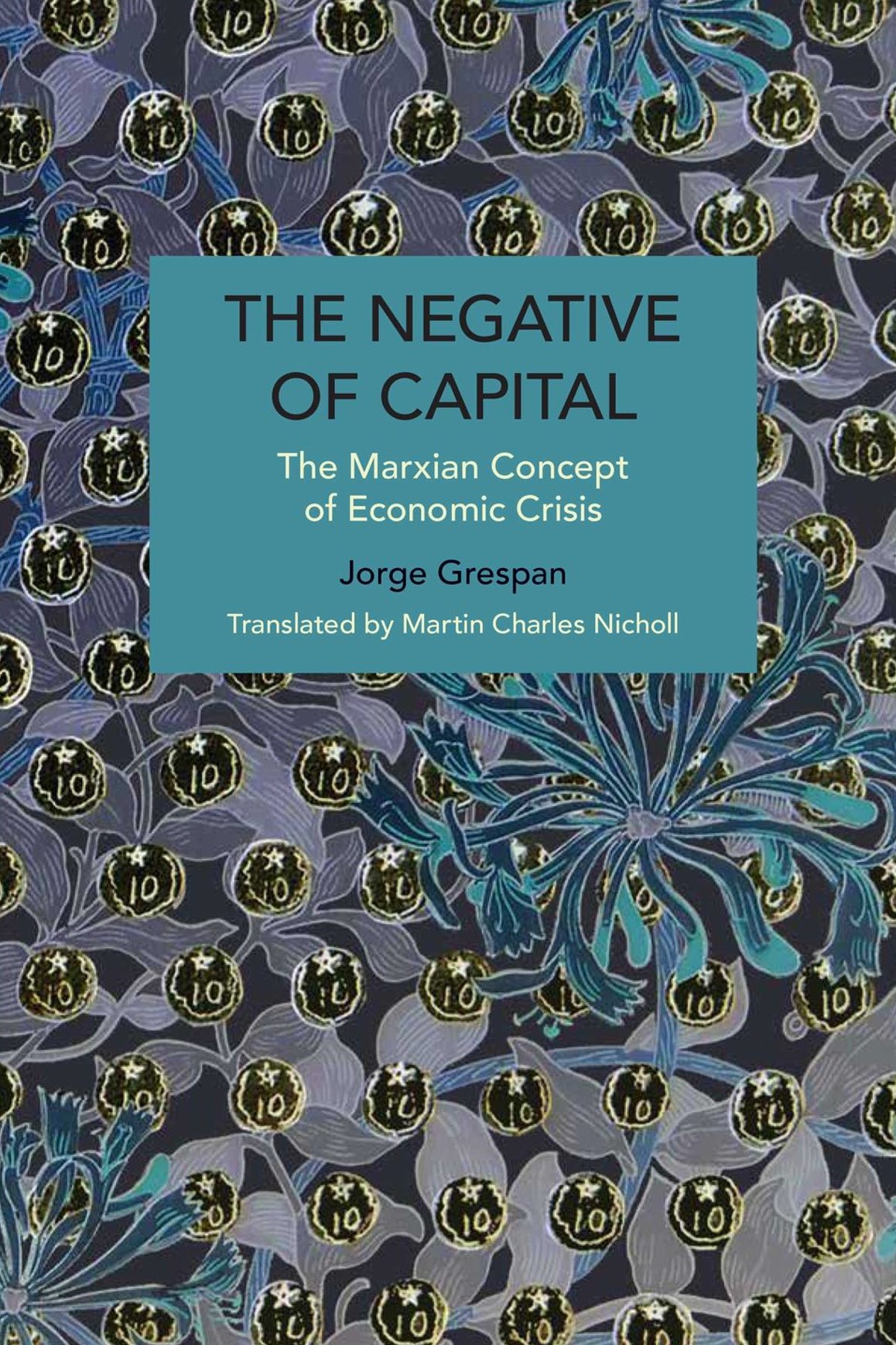Jorge Grespan
Jorge Grespan’s work renews these traditional debates by treating the concept of crisis as the negative of the concept of capital. By means of a thoroughgoing exposition of Marx’s masterwork, his book reconstitutes the steps by which Capital’s exposition progressively enriches its content and form. To this end, dialectical categories such as measurelessness and relative necessity are mobilised and developed.
Biographical Note
Jorge Grespan, studied Economics and History at the Universidade de São Paulo – Brazil, and is Professor of Theory of History since 1985 at the same university. He has published many articles, books, and book chapters in Portuguese and Spanish. In English he published “About the Beginning and End of Capitalism”, in Marx’s Capital. An Unfinishable Project?, Leiden, Brill, 2018, and “The renewal of Marxist Historiography through the Study of Enslavement. The Case of Brazil”, in What is Left of Marxism, Berlin, De Gruyter, 2020.
Readership
Students and researchers in Economics, Economic History, Sociology, German Philosophy.
Table of Contents
Preface to the English edition
Acknowledgements
Introduction
1 The Double Face of Capital
2 Content of the Crisis
3 Crisis and Modality
1 The World of Commodity Producers
1 The Social Division of Labour
2 Money and Crisis
2 The Constitution of Capital
1 From Simple Circulation to Capital
2 The Subjectivity of Capital
3 The Measureless Nature of Crisis
3 The Figures of Reproduction
1 The Circuits of Capital
2 The Reproduction of Social Capital
4 Capital as a Totality
1 Competition and Profit
2 The Tendential Fall in the Rate of Profit
3 Periodical Overaccumulation
Conclusions
1 The Time of Crisis
2 The Actual Crisis
3 The Modalities of Crisis
4 The Power of Fetishism
Postface
1 Commercial Capital and its Crises
2 Interest-Bearing Capital and its Crises
Bibliography
Index


